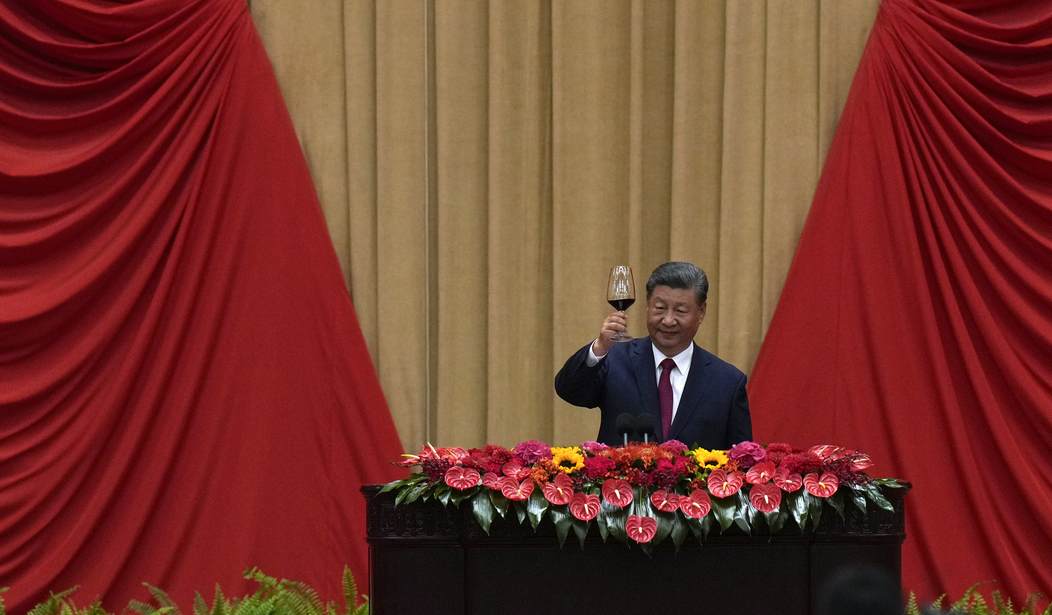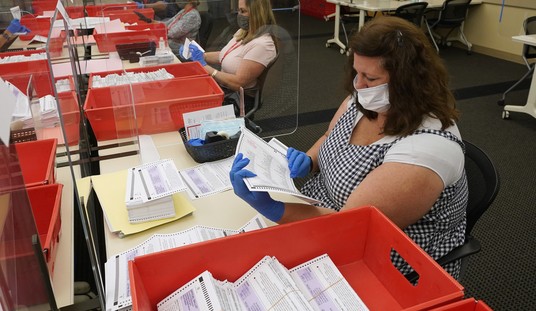As some of us expected, China responded to President Donald Trump’s “Liberation Day” tariffs on Friday by announcing a 34 percent tariff on all goods imported from the United States.
Beijing's tit-for-tat move comes after Trump announced "reciprocating" tariffs on products imported into the U.S. from all over the world, including a 34 percent tariff on goods imported from China.
The early question is whether the ChiComs are blustering or their announcement could lead to further escalation and the beginning of a protracted trade war. Unfortunately, the answer is unknowable.
ALSO READ: Treasury Secretary Has Blunt Warning for Countries Upset Over Trump Tariffs: 'Take It In'
Watch: Trump Declares 'Liberation Day in America' in Rose Garden Tariffs EO Event
In a Friday statement, the Chinese Ministry of Finance accused the United States of violating international trade rules with the tariffs.
The U.S. practice is inconsistent with international trade rules, seriously undermines China’s legitimate rights and interests, and is a typical unilateral bullying practice that not only undermines the interests of the United States itself, but also endangers global economic development and the stability of the production and supply chain.
China urges the United States to immediately cancel its unilateral tariff measures and resolve trade differences through consultation in an equal, respectful and mutually beneficial manner
The ministry said the tariff on all “goods originating from” America will go into effect on April 10.
Here's more:
Separately, China also added 11 U.S. firms to the “unreliable entities list” that the Beijing administration says have violated market rules or contractual commitments. China’s Ministry of Commerce also added 16 U.S. entities to its export control list and said it would implement export controls on seven types of rare earth-related items, including samarium, gadolinium and terbium.
Beijing has also filed a formal complaint against the U.S. with the World Trade Organization, the Ministry of Commerce confirmed in a Google-translated release, saying Washington’s tariffs policy “seriously violates WTO rules, seriously damages the legitimate rights and interests of WTO members, and seriously undermines the rules-based multilateral trading system and the international economic and trade order.”
While multiple reports suggest China's economy is in serious trouble, including a late-January report from Forbes under the headline "Is China’s Economy Entering ‘Historical Garbage Time’?", there's likely more at play in the minds of China's communist leaders than just the country's economy — first and foremost, China's aversion to being seen by the rest of the world as kowtowing to the United States.
As Reuters reported on Friday, Wall Street quickly reacted to China's announcement:
Wall Street fell sharply on Friday morning, after China announced its retaliatory tariffs a day after the Trump administration's sweeping levies knocked off $2.4 trillion from U.S. equities. Shares of big tech stocks fell, helping to drive the Nasdaq toward a bear market. Companies with big exposure to China and Taiwan for manufacturing their products were hard-hit, with Apple (AAPL.O), opens new tab down 4.7% and Nvidia (NVDA.O), opens new tab down 3.4%. The Nasdaq showed a 3.69% decline, bringing the index to 20% below its all-time closing high in December.
There are no easy answers or easy solutions here. And as I suggested earlier, the future of the tariff battle is unknowable. That said, whatever the outcome proves to be, this whole thing will likely be a fascinating case study in the years to come.














Join the conversation as a VIP Member